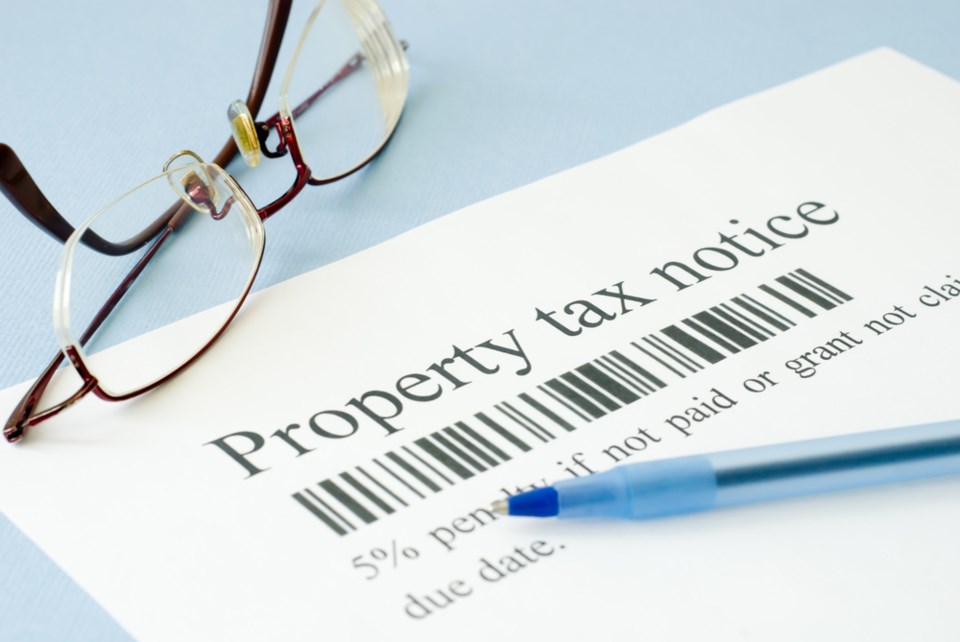Sault Ste. Marie homeowners pay a super-dear 1.53097 per cent property tax rate but you can't beat our bargain-basement home prices, according to the real estate website Zoocasa.com.
Our property tax rate is third-highest among 35 Ontario municipalities recently studied by Zoocasa, a Toronto-based real estate data provider and digital brokerage.
The firm's annual tax rankings are a thorn in the side of politicians and number-crunchers at the Ronald A. Irwin Civic Centre, who say they don't tell the whole story.
The only cities with higher property tax rates were Thunder Bay (1.562626 per cent) and Windsor (1.775679 per cent).
Northern Ontario swept four of the top spots on the province's taxed-to-the-max list, with North Bay ranked fourth at 1.528326 per cent and Sudbury at 1.492189 per cent.
Saultites pay $3,827 a year on properties assessed at $250,000, $7,655 on $500,000 assessments and $15,310 on million-dollar mansions.
But most of us pay considerably less than those figures.
Zoocasa found Sault Ste. Marie's average home price of $209,785 to be lowest among the 35 municipalities studied.
Among the province's cheapest places to live, we were followed by Thunder Bay with average residential real estate assessment of $266,628, Sudbury with $339,439, North Bay at $414,560 and Windsor's $428,276.
"While property taxes may not be the largest influence when deciding how much to spend on a property or what municipality to buy a home," says Zoocasa's Jannine Rane, "the costs are worth understanding as they amount to thousands of dollars per year."
"In 2020 in particular, a number of home buyers in the Toronto area have elected to trade their urban condos for bigger homes in municipalities across Ontario," Rane says in the Zoocasa report, released last week.
"It’s important for buyers who are moving to a new municipality to note that the property tax rate their home is subject to and the total amount they pay in taxes every year will change as municipal tax rates vary widely across Ontario."
Rane, who is Zoocasa's head of communications, adds: "Depending on the municipality, the difference paid annually can be thousands of dollars depending on the size of the city, its council’s operating budget, and even factors such as the health of its housing market."
Indeed, Zoocasa's figures show Toronto has the province's lowest property tax rate, with a cloud-scraping average house price of $1,025,925.
Here's who had the lowest property tax rates in Ontario:
- Toronto: 0.599704 per cent
- Markham: 0.628191 per cent
- Richmond Hill: 0.653108 per cent
- Vaughan: 0.665259 per cent
- Milton: 0.668702 per cent
"Cities with high-valued local real estate and larger populations generally have more leeway on keeping their tax rate low, as the amount collected from individual homeowners is, as a reflection of the real estate prices in the area, generally higher," Rane says.
"Plus there are more tax payers to contribute to the pot."
Another factor is a municipality's ratio of commercial-to-residential taxes.
"In most municipalities, businesses pay at least double the amount of tax than homeowners, with the Canadian average at 2.5. Generally, a higher commercial property tax rate translates to a lower residential rate, and vice-versa; a local council may opt to hike the latter if they feel their community needs to offer more competitive advantages to businesses," Rane says.
The Zoocasa Top 5 highest-property-tax-ratio cities are the same five municipalities as last year, in the same order.
The City of Sault Ste. Marie maintains Zoocasa's rankings don't reflect the whole picture.
"They're taking something that's part of a variable in an equation, that doesn't represent the entire picture of an issue," White told us when last year's list was released.
"In determining the amount of property taxes paid by a taxpayer, the amount of the tax levy is determined by a tax rate times the assessment value," White said.
"So it would be no surprise that cities in northern Ontario such as Sudbury, North Bay, Sault Ste. Marie and Thunder Bay, which have lower assessment values than municipalities in southern Ontario, would have higher tax rates than southern Ontario municipalities."
"If I have a higher value of assessment, then my tax rate can be lower to raise that same amount of money."
"Using their information, it's quite obvious that you get more home for your money in Sault Ste. Marie than almost anywhere else in Ontario," White said.
